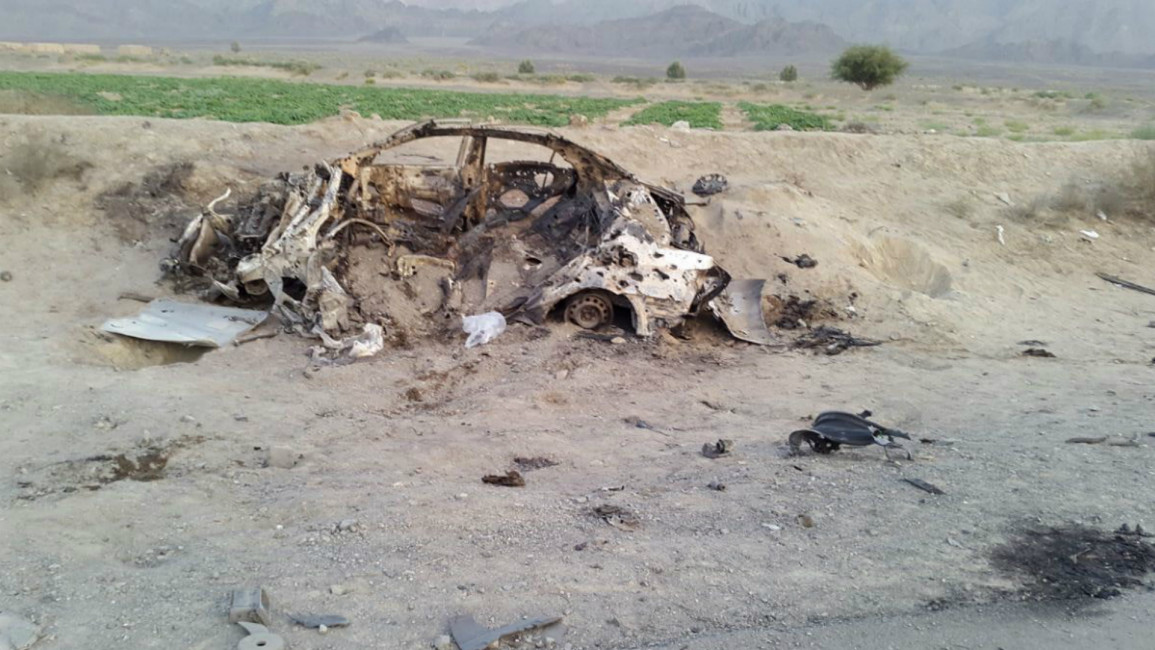Obama confirms Afghan Taliban leader's death in US strike
President Barack Obama on Monday confirmed Taliban chief Mullah Akhtar Mansour was killed in a US airstrike, hailing his death as an "important milestone" in efforts to bring peace to Afghanistan.
Saturday's bombing raid, the first known US assault on a top Afghan Taliban leader on Pakistani soil, marks a major blow to the militant movement, which saw a new resurgence under Mansour.
"We have removed the leader of an organisation that has continued to plot against and unleash attacks on American and Coalition forces, to wage war against the Afghan people, and align itself with extremist groups like Al-Qaeda," the US president said in a statement.
Senior Taliban sources have also confirmed the killing, adding that a shura council meeting was being called to select a new leader.
Obama, on a three-day visit to Vietnam, said Mansour had rejected efforts "to seriously engage in peace talks and end the violence that has taken the lives of countless innocent Afghan men, women and children".
He insisted there was no change in US tactics and that troops, who were withdrawn from combat duty in Afghanistan in 2015, would not be going back into the fray.
"On the other hand... it is my responsibility as commander in chief not to stand by, but to make sure we send a strong signal to the Taliban and others that we're going to protect our people. And that's exactly the message that has been sent."
He called on the Taliban's remaining leadership to engage in peace talks as the "only real path" to ending the conflict.
Mansour was elevated to the top of the Taliban leadership in July 2015, following the revelation that the group's founder, Mullah Omar, had died two years earlier.
 |
It was believed to be the first time the United States has targeted a senior Taliban figure in Pakistan |  |
He was killed on Saturday near the town of Ahmad Lal, in Pakistan's southwestern Balochistan province, when missiles fired from a drone struck the car in which he was travelling.
It was believed to be the first time the United States has targeted a senior Taliban figure in Pakistan.
Pakistan, which says it is hosting the Afghan Taliban's top leadership in order to exert influence over them, has lambasted the United States over the drone attack, calling it a violation of its sovereignty.
In his statement, Obama said American forces would continue to go after threats on Pakistani soil.
"We will work on shared objectives with Pakistan, where terrorists that threaten all our nations must be denied safe haven," he said.
But the strike could signal a fresh blow for US-Pakistan ties, which have improved markedly in the years since the killing of al-Qaeda founder Osama Bin Laden in 2011.
The US has carried out hundreds of drone strikes in Pakistan, mainly in the country's tribal regions bordering Afghanistan, with leaked documents showing Islamabad had quietly consented, despite publicly protesting.
This time, however, both sides insist Pakistan was informed only after the fact. Leaked diplomatic cables from 2010 had indicated that Islamabad wanted Balochistan, home to a separatist insurgency, to remain off-limits to the Pentagon.
The meeting of the Taliban's Supreme Council continued into its second day on Monday, according to senior militant sources, though the group has yet to release an official statement.
A senior Taliban source told AFP the killing had sent shockwaves through the leadership and many were laying low in Pakistan - while some had fled across the border to Afghanistan.
"The shura meeting is continuing at an undisclosed location, they keep on moving due to the fear of US drone strike," the source told AFP.
Possible contenders to succeed Mansour include the sons of Taliban founder Omar, Mullah Yakoub and Mullah Abdul Manan Akhund.
But it is Sirajuddin Haqqani - leader of the feared Taliban-allied Haqqani network responsible for some of the worst attacks on Afghan and US targets - whose name has popped up most frequently among senior sources.
His appointment could intensify the conflict even further.
"This could be the time Haqqanis will try to take over the whole movement," said Pakistani security analyst Amir Rana.



